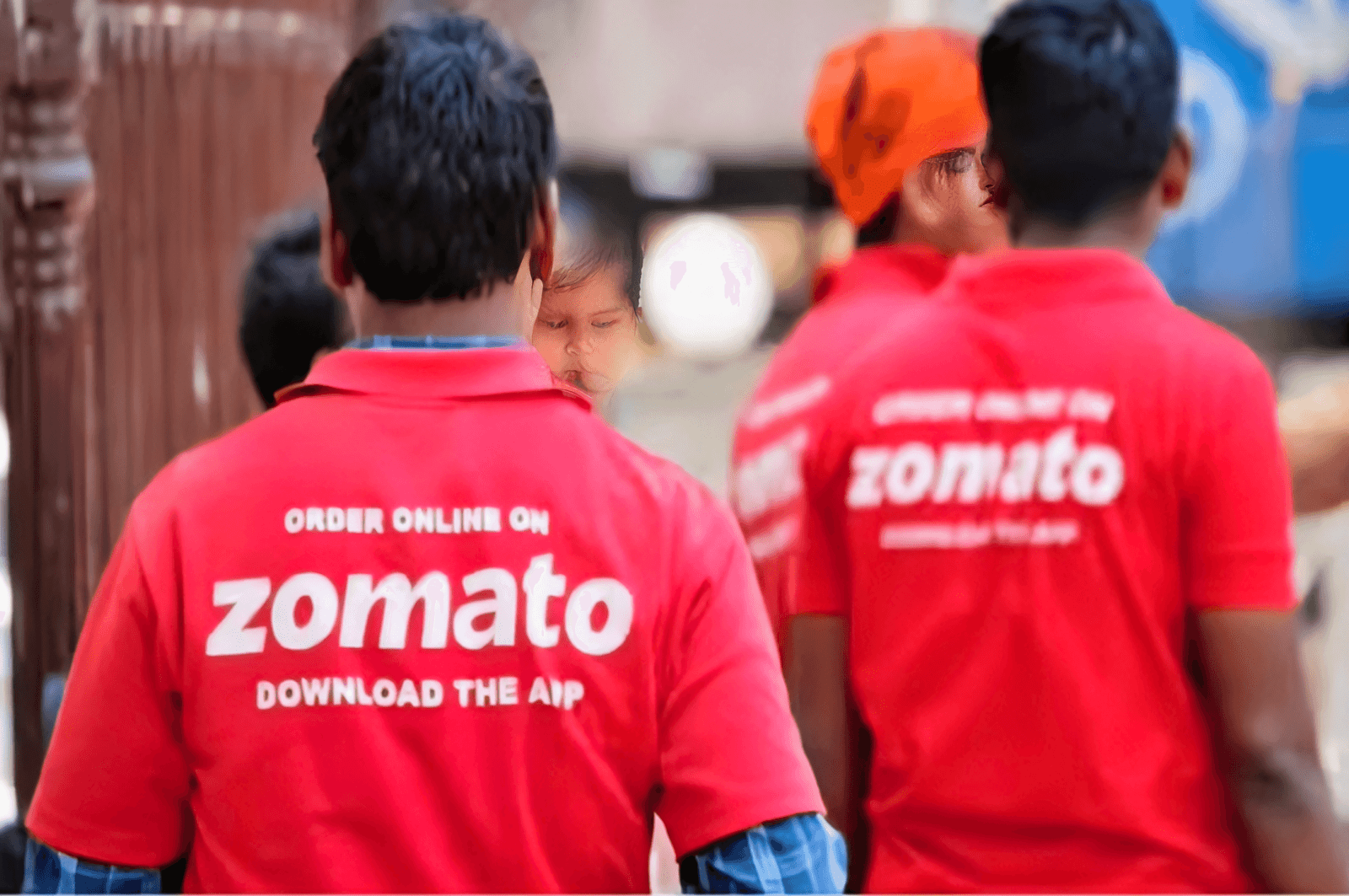One of the top meal delivery systems in India, Zomato has revolutionized the food sector by linking consumers with eateries via a simple app.
Although its main responsibility is to present mouthwatering cuisine right at people’s homes, Zomato is also very important for creating jobs.
For thousands of gig workers—including delivery guys—who support its operations, it offers chances.
The business not only generates employment but also has taken many actions to raise the working conditions of its delivery partners.
Zomato has been striving for the welfare of its employees from guaranteeing fair compensation to implementing insurance coverage and mental health support.
Generation of Employment via Zomato
Creation of jobs is one of Zomato’s most important contributions. The company has enlarged its activities over Indian cities and villages in response to the growing demand for food delivery services, therefore providing employment for people from several backgrounds.
Using Zomato’s gig economy approach, many people—including students, part-timers, and those looking for flexible work—have discovered financial security.
For many, Zomato offers a means of earning free from high degrees of formal education or professional experience.
A two-wheeler owner with a smartphone can register as a delivery partner as long as For those who lost jobs because of economic downturns or are having trouble finding work in conventional areas, this has especially helped.
Welfare Policies for Delivery Companions
Long working hours, difficult weather, and road accidents are just a few of the obstacles Zomato has seen its delivery partners encounter.
The organization has launched several programs meant to enhance their working experience in order to guarantee their welfare.
Fair and Clear Income
Income stability is among the main issues gig workers have. Under Zomato’s open payment structure, delivery partners get paid depending on the quantity of orders they fulfill, distance traveled, and incentives given during busy times.
The business makes sure delivery partners get just pay and implements incentives to increase their income during holidays and peak demand.
Accidental and Medical Coverage
Zomato gives its partners health and accident insurance since it understands the hazards involved in delivering job. Delivery drivers are more likely to get in accidents since they ride through bad weather and congested traffic.
Through providing medical coverage, Zomato enables delivery partners to control emergency medical costs.
Well-Being Support for Mental Health
Particularly when employees must satisfy customer expectations, restaurant delays, and road traffic while simultaneously meeting rigorous schedules, delivery labor can be taxing.
Zomato has instituted awareness campaigns and counseling services to help its employees’ mental wellness. These programs seek to lower stress connected to work and raise general job satisfaction.
Deepinder Goyal’s Visit to a Mall: Recognizing Delivery Worker Challenges
Deepinder Goyal, the CEO and founder of Zomato, has never been quiet about the company’s dedication to its delivery partners.
He once physically visited a mall to meet delivery guys and learn about their difficulties directly.
He observed several delivery workers waiting outside restaurants for extended periods of time—sometimes in severe weather—during his visit as orders were being prepared. Many of them had even access to fresh drinking water, let alone anywhere to relax or sit.
Seeing their hardships, Goyal moved right away to set “Rest Points” where delivery partners may use basic amenities including washrooms and mobile charging stations, have breaks, and consume beverages.
This visit underlined the need of direct interaction with gig workers and demonstrated that Zomato was ready to pay attention to their issues and act accordingly. It also showed how much the company respects the people that help it to run successfully.
Handling Public Issues and Worker Rights
Zomato has been under fire about the rights of gig workers, especially with relation to long hours and job stability.
Deliveries partners work on a contract basis, unlike full-time staff members, hence they do not get the same perks. Zomato has been focusing on bettering its policies in order to answer these issues.
The corporation has acted to offer workers in need financial aid programs as part of social security benefits.
Zomato created emergency money during the COVID-19 epidemic to assist delivery partners unable to work because of health problems or lockdown restrictions. These steps have helped the employees of the organization develop confidence.
Gig Worker Welfare: Future Prospect at Zomato
Zomato keeps looking for methods to raise the working conditions for its delivery partners. The company is experimenting fresh concepts including stronger incentive systems,
electric bike rentals to cut fuel expenses for delivery personnel, and even career development programs letting delivery partners move into other roles inside the business.
With an eye toward technology, creativity, and worker welfare, Zomato hopes to lead the gig economy. One of the most progressive organizations in the food delivery sector is its attempts in juggling employment generation with social responsibility.
Ultimately
Thousands of gig workers have found employment thanks in great part to Zomato, which also helps them support their families by means of a livelihood.
Simultaneously, the business has proven a dedication to worker welfare by implementing programs meant to guarantee health benefits, promote financial stability, and enhance working conditions.
Deepinder Goyal’s visit to a mall and his prompt response to enhance the working conditions of his delivery partners provide witness to Zomato’s approach toward employee welfare.
Even if problems still remain, Zomato’s relentless attempts to solve them demonstrate how much it appreciates the individuals guiding its company ahead.
Zomato’s approach of employment development and worker support should motivate other businesses to match as the gig economy develops, therefore improving the sustainability and worker friendliness of the food delivery sector.







